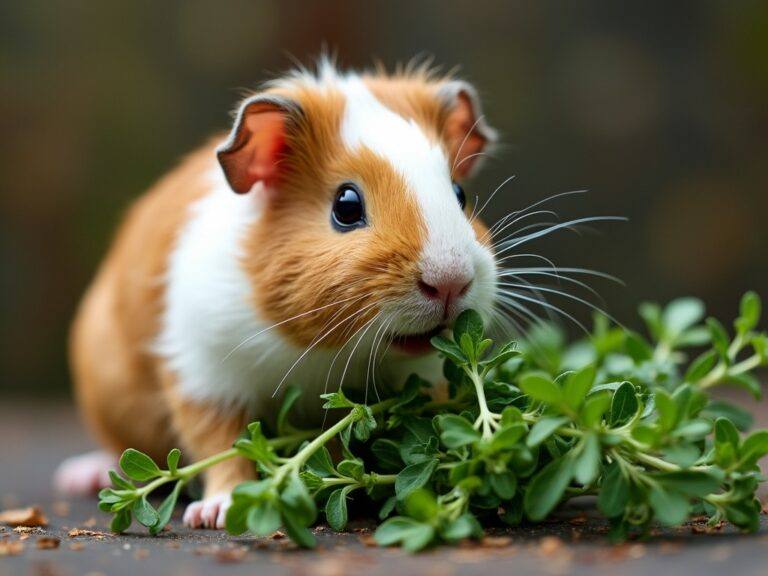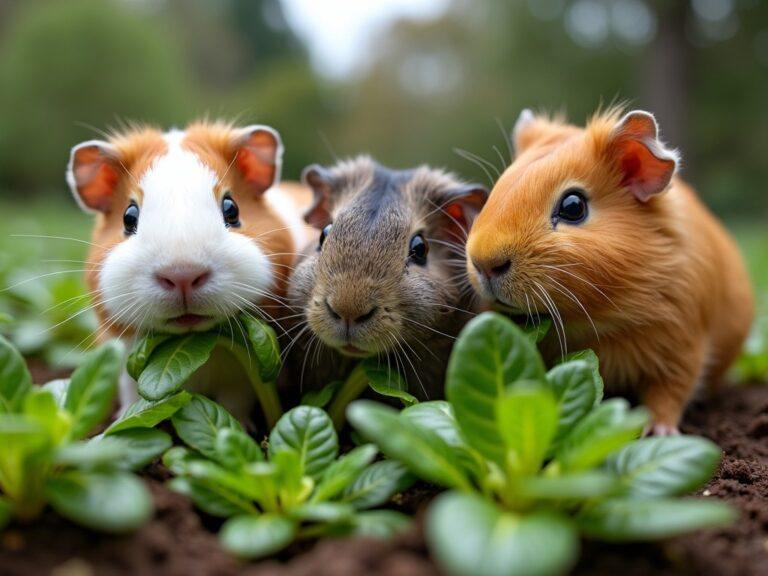Can Guinea Pigs Safely Eat Aubergine
Guinea pigs can safely eat aubergine, but it should be given in moderation. Aubergine, also known as eggplant, contains nutrients beneficial to guinea pigs, but it also has elements that could be harmful if consumed in large amounts.
Aubergine is packed with vitamins and minerals. It’s a good source of vitamins A, B6, and C, which are important for the overall health of guinea pigs.
The fiber in aubergine aids in digestion, which is crucial for maintaining a healthy gastrointestinal tract in these small pets.
However, there are risks to consider. Aubergine belongs to the nightshade family and contains solanine and oxalates.
Consuming large quantities can lead to toxicity, causing health issues like digestive upset and potential kidney problems.
Ensuring the aubergine is fresh and free from chemicals is also vital. Always wash it thoroughly before serving to remove any pesticide residues.
To safely include aubergine in your guinea pig’s diet, offer small amounts occasionally. Observe your pet for any adverse reactions.
A diversified diet with a mix of safe vegetables ensures they receive balanced nutrition without overloading on any one type of food.
Introducing Aubergine to Your Guinea Pig’s Diet
Introducing aubergine to a guinea pig’s diet requires thoughtful preparation and moderation. Start with small, bite-sized pieces to see how your guinea pig reacts.
Remember, moderation is key due to the potential risks associated with overconsumption.
Before serving, wash the aubergine thoroughly to remove any pesticides. It’s best to peel the aubergine, as the skin can be tougher and harder for guinea pigs to digest.
Avoid seasoning or cooking the aubergine – raw and simple is the way to go for these little pets.
When offering aubergine for the first time, monitor your guinea pig closely for any signs of discomfort or unusual behavior.
This includes changes in eating habits, droppings, or activity levels. If your pet shows any negative reactions, remove aubergine from their diet immediately.
Gradual introduction is important. Start with a small piece and wait a few days before giving more. This slow process helps their digestive system adjust and ensures they are not allergic or sensitive to the new food.
Always maintain a rotation of various safe vegetables to provide a balanced diet. Aubergine should be an occasional treat rather than a staple. Mixing it with other healthy vegetables keeps your guinea pig’s diet diverse and nutritious.
Alternative Healthy Foods for Guinea Pigs
Variety is essential for a balanced diet, so along with the occasional aubergine, consider adding various safe vegetables to your guinea pig’s menu.
Bell peppers are a great option, packed with vitamin C, which is vital for guinea pigs. Carrots and cucumbers are also good choices, offering hydration and essential nutrients.
Fruits can be a sweet treat. Apples, pears, and berries are guinea pig favorites but remember to remove any seeds or pits as they can be harmful.
I always recommend offering fruits sparingly due to their high sugar content to prevent weight gain and dental issues.
Leafy greens like romaine lettuce, spinach, and kale should be staples in their diet. These greens are rich in fibers and vitamins that help keep your guinea pig healthy. Always wash them thoroughly to remove any potential pesticides.
Creating a balanced diet involves more than just vegetables and fruits. Fresh hay and fortified guinea pig pellets should be the primary food sources.
Hay aids in digestion and keeps their teeth properly worn down, while pellets provide essential nutrients tailored for guinea pigs.
Remember, water is crucial. Ensure your guinea pig has access to clean, fresh water at all times. Regularly check and refill their water supply to keep them hydrated and healthy.







